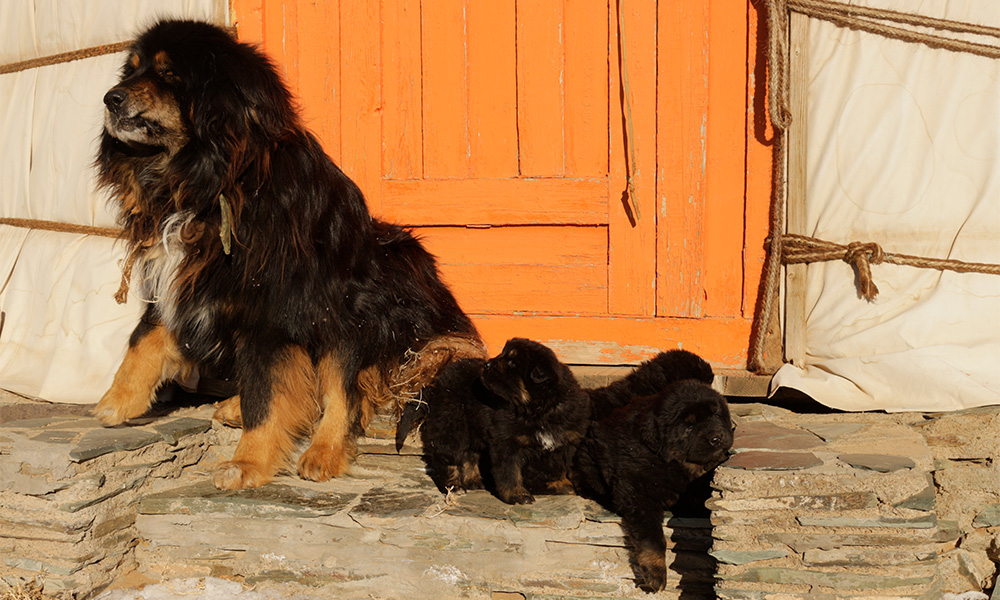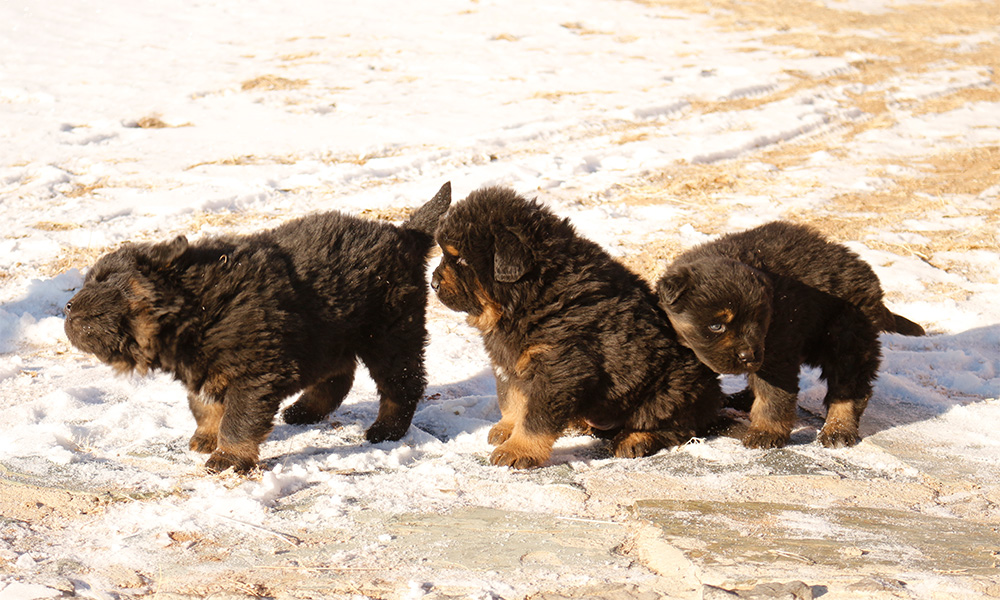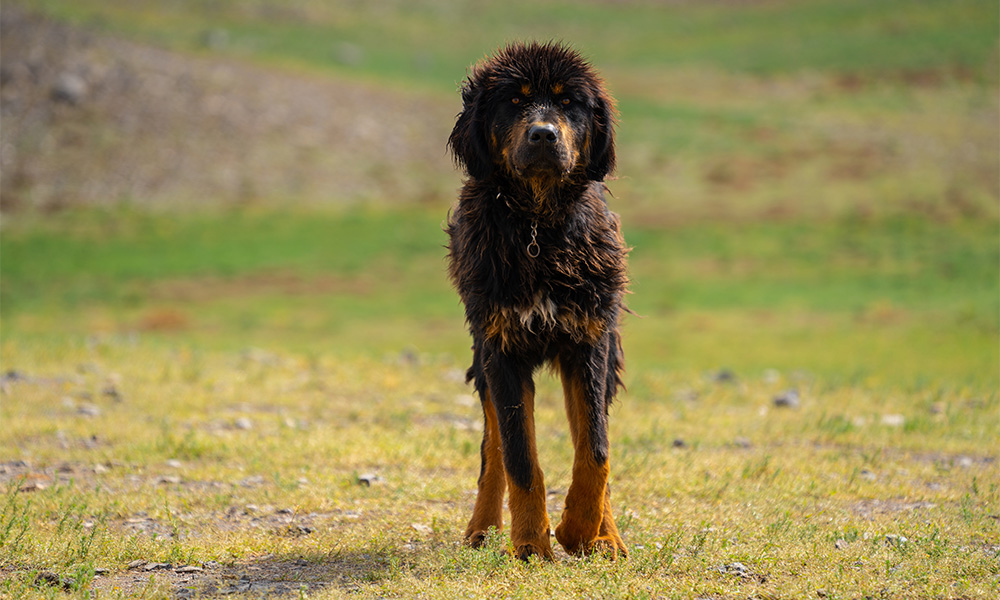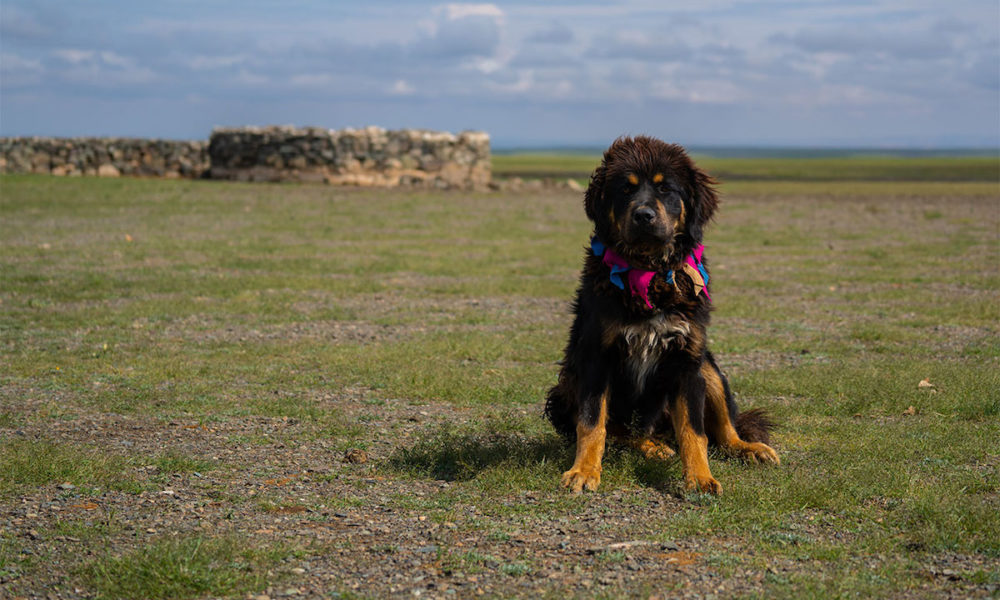Restoring the Bankhar Breed Population
Three Camel Lodge and the Bankhar Dog Project have jointly started breeding the Mongolian breed and reintroducing this native dog throughout the Gobi region to simultaneously help decrease conflict between herders and the wild animals who might prey upon livestock if not for intervention by Bankhar dogs.
Bankhars are guardian dogs, very loyal to their duty to protect livestock and their owners. Bankhar have historically been beloved friends of the nomadic herders of Mongolia, used as working dogs to protect livestock from natural threats. When approaching dwellings, Mongols would also commonly say, “Hold your dogs,” because they are such fierce protectors.
While Bankhars do not chase predators for long distances, they do not hesitate to attack when a predator approaches the herd, and they do not budge or run away when a threat presents itself.
During the Communist era of Mongolia between 1920-1990s, the Soviet occupiers sought to eradicate the breed as Bankhar dogs were viewed as symbolic of the Mongolian people. Most of the dogs were set loose or exterminated. Also, misinformation about the dogs spreading disease was circulated to further justify the ruthless policy of sending Bankhars to coat factories in Russia to fulfill a growing demand for their fur.

Newly Bred Bankhar Are Thriving
The first male Bankhar puppy brought to Three Camel Lodge in 2015 was named “Barbus.” In 2019, a female, Ganuba, was brought to lodge from the Bankhar project’s breeding facility to mate them. In December 2020, their first three puppies were born—two males, one female—and the two males were given to local herders as shepherd dogs.
The two families who received puppies dwell about 5 to 8 miles from Three Camel Lodge in the Nutsgen steppe and they winter about 15 to 20 miles away in the mountain area called Khavtsgait. Their puppies are now full size and are responsible for guarding more than 1,000 sheep and goats, about 80 cattle, and 80 horses. They are succeeding in this responsibility in the wilderness of the Gobi, keeping human and animal conflict untriggered.

Obstacles Facing the Bankhar
Nomadic families move frequently from pastureland to pastureland depending on climate. Some nomadic families move 10 to 15 times per year till they find good pasture for their animals. During these fast-paced migrations, Bankhar dogs are responsible for looking after the herds.
In the steppe, grey wolves present numerous threats to nomadic families. Wolves try to snatch lambs or baby goats or the weakest amongst the herd. Bankhar dogs must stand guard over hundreds of animals gathered around a dwelling in the wilderness and be vigilant about potential threats.
During winter, predators to livestock pose even more of a threat because their usual quarry of wild animals (ibex, Argali sheep, gazelle, rodents) have migrated away or hidden in hibernation. Apex predators such as snow leopards also will attack domesticated animals when herds migrate through their territory. According to the Bankhar Dog Project study, Bankhar dogs can minimize threats from predators to livestock by more than 80%.

Selecting New Adoptive Families
In December 2021, three new puppies were born, and they will be given to local herders at the end of February. There are more than 10 nomadic families who have expressed interest in adopting the pups. Even more families are willing to participate in helping the Bankhar Project reintroduce the dogs to the Gobi.
To choose families, our staff interview them, visit the family’s summer and winter pastures, learn how many head of livestock they have and what kind of animals they are. When a family is chosen, they are given full instruction on their puppy’s diet, behavior, vaccination information, and how to train them.
Three Camel Lodge and Bankhar Project staff visit the families regularly to document the growth of puppies and learn how they’re adapting to their new environment and atmosphere. Steadily, the project continues to grow exponentially, prove beneficial, and restore this essential Mongolian breed.

